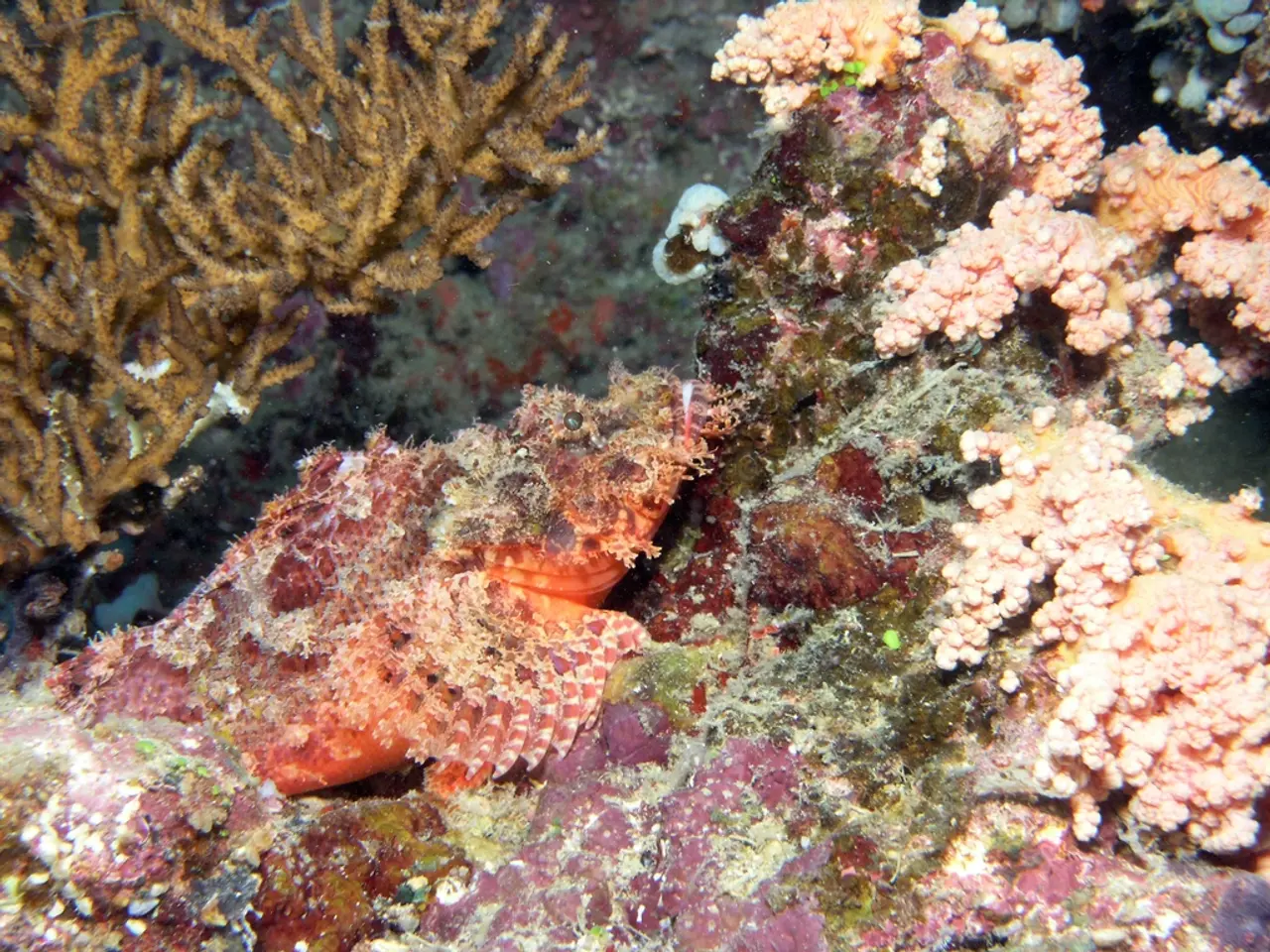Guide for Novices on Seaweed, Sea Moss, and Other Marine Plants
In the vast and diverse ocean, seaweeds have long been recognised for their high nutritional value and potential health benefits. From kelp, a type of brown seaweed, to various other species, these marine plants offer a wealth of nutrients that can contribute to a balanced diet.
Rich in Nutrients
Seaweeds are a treasure trove of essential nutrients. They provide significant amounts of iodine, vitamin B12, vitamin D, iron, calcium, folate, magnesium, and more, all while being low in calories [1]. For instance, just 2 tablespoons of wakame seaweed contain negligible calories but meaningful amounts of calcium, magnesium, and iron [1].
Heart Health and Bone Health
The unique plant compounds in seaweed may help promote heart health and possibly reduce the risk of cardiovascular diseases [1]. Additionally, seaweed may help reduce the risk of osteoporosis due to its calcium content and other minerals [1].
Thyroid Support and Antioxidant Properties
The high iodine content in seaweeds supports proper thyroid function, which is crucial for metabolism regulation [1]. Furthermore, seaweeds are rich in antioxidants, which can help protect cells from damage and may reduce inflammation [1].
Potential Cancer Risk Reduction
Some evidence suggests that brown seaweeds, including kelp, may have anti-carcinogenic effects, possibly due to a combination of their fiber, minerals, and bioactive compounds like fucoidan [3]. However, most of the evidence is based on observational studies, and seaweed supplements are not recommended over whole-food consumption [3].
Health Risks Associated with Seaweed Consumption
Despite their benefits, consuming seaweeds—especially in large amounts—carries several risks.
Excessive Iodine Intake
Seaweeds, particularly kelp, are among the richest natural sources of iodine. Excessive iodine can disrupt thyroid function, potentially causing either hyperthyroidism or hypothyroidism, and may worsen existing thyroid disorders [2][3]. Very high iodine intake can also elevate blood pressure and blood sugar [3].
Contaminant Exposure
Seaweeds can accumulate heavy metals such as cadmium, lead, and arsenic, as well as environmental pollutants from seawater [2]. Regular consumption may lead to non-negligible exposure to these contaminants.
High Sodium Content
Some seaweeds are high in sodium, which can contribute to high blood pressure, especially in salt-sensitive individuals [3].
Drug Interactions
The vitamin K content in seaweed may interact with blood-thinning medications like warfarin, potentially affecting their efficacy [1].
Uncertainty with Supplements
Seaweed supplements can vary widely in nutrient (especially iodine) content, making it difficult to regulate intake and increasing the risk of excessive consumption [3].
Key Considerations for Safe Consumption
- Moderation is crucial to avoid excessive iodine and contaminant intake, especially for those with thyroid conditions or on certain medications [2][3][5]. - Prefer whole seaweeds over supplements, as whole foods provide a balanced matrix of nutrients and fiber [3]. - Be aware of sodium levels, especially for individuals with hypertension [3]. - Monitor for heavy metal exposure if consuming seaweed regularly, as some varieties may have higher levels of environmental contaminants [2].
In conclusion, edible seaweeds, including kelp, offer valuable nutrients and potential health benefits when consumed in moderation as part of a balanced diet. However, due to the risk of excessive iodine, heavy metal exposure, and high sodium, intake should be carefully managed—particularly for individuals with thyroid disorders, hypertension, or those taking certain medications. Whole-food forms are preferred over supplements, and regular consumers should be mindful of the source and variety of seaweed to minimise contaminant risks [2][3][5].
References:
[1] Cleveland Clinic. (2021). 8 potential health benefits of sea moss. Retrieved from https://health.clevelandclinic.org/8-potential-health-benefits-of-sea-moss/
[2] European Food Safety Authority Journal. (2021). Dietary exposure to heavy metals and iodine intake via consumption of seaweeds and halophytes in the European population. Retrieved from https://efsa.onlinelibrary.wiley.com/doi/10.2903/j.efsa.2021.6416
[3] Nutrition Reviews. (2019). Risks and benefits of consuming edible seaweeds. Retrieved from https://academic.oup.com/nutritionreviews/article/77/9/550/5651742
[5] GundryMD. (n.d.). Warning: Eating blueberries may be harmful to your health. Retrieved from https://www.gundrymd.com/danger-of-blueberries/
Seaweeds, with their rich nutritional profile, can contribute to health-and-wellness by offering essential nutrients such as iodine, vitamin B12, vitamin D, iron, calcium, folate, magnesium, and more, making them a suitable addition to healthy-diets. Moreover, seaweeds, due to their unique plant compounds, may potentially support heart health, reduce the risk of cardiovascular diseases, and contribute to bone health by helping in the reduction of osteoporosis risk.




